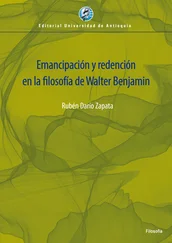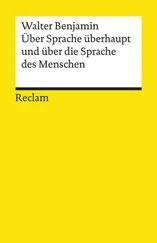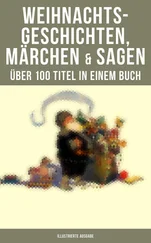PASTOR GRUNELIUS ( clearing his throat ): I believe it’s time for me to go, my good gentlemen. At seven we have a meeting in the consistory. My respects to all.
Murmurs of leave-taking.
FIRST MAN OF LETTERS: He won’t have taken that the wrong way, will he, old Grunelius?
UNGER: Whatever are you thinking? He’s the most good-natured man in the world.
SECOND MAN OF LETTERS: Beautiful and true, what you say here to our little ones about Olympus. Yet there is also another way to free children from superstition and whim, and I know of someone who steers clear of the old gods and heroes even more unabashedly. It is Doctor Kortum from Mülheim. 37And if it were up to me, and I had a Prize for Enlightenment to award, he and no other would have to have it.
FIRST MAN OF LETTERS: But you cannot possibly be serious. You would present this Jobsiade, which is nothing but one long run of boorishness, as a model to the Enlighteners?
SECOND MAN OF LETTERS: Because it has what all of you lack, namely, humor. And in the long run, knowledge without humor leads back to obscurantism, dogmatism, and despotism. That’s what is so good about this Kortum, that he also has no respect for the Enlightenment. He groups everything together, gods, heroes and professors, pastors and courtly ladies, lords of the manor and candidates. Just like his friend Death. You know, the one who closes the first book of the Jobsiade :
Inasmuch as friend Death makes not the smallest
Distinction between the lowest and tallest,
But cuts down all both low and high,
With the strictest impartiality.
And, as he ever slyly watches,
The cavalier and the clown he catches,
The beggar and also the great Sultán,
The tailor and also the Tartar Khan.
And with his scythe his rounds he goeth
And honorables and lackeys moweth,
The herdsmaid and the titled dame,
Without distinction of place or name.
He listens to no compromises;
Both crowns and bag-wigs he despises,
Doctor’s hats and the stag’s horns
And whatever else men’s heads adorns.
A thousand things he has command of,
By which he us can make an end of,
And now the dagger, and now the pest,
And now a grape-stone, gives us rest.
Now a law-suit and now a splinter,
Now a bad woman and now a bad winter
Now a noose or other snare,
Of which may Heaven help us beware.
Misshapen Esop his fables tellin’,
And the Grecian beauty, world-famed Helen,
Unhappy Job and King Solomon,
Gave up the ghost and now are gone.
Not one of them found time for fleein’,
Not Nostradamus nor Superintendent Ziehen:
With doctor Faust, dreamer Swedenborg, too,
He made a clean sweep and went through.
Orpheus, the great musician,
Molière, the comedian of the Parisian nation,
And the famous painter Apellés,
Friend Death has swept away all these.
Summa Summarum, the long and the short is,
That in none of the chronicles do we find notice,
That friend Death has ever any one passed
Without coming back for him at last.
And what he has not eaten already
He will not fail to remember when he’s ready:
Alas! dear reader, also thee,
And what is worst of all, even me! 38
Well, what do you think of that?
MORITZ: Maybe it’s a bit quirky, but I am strangely moved to see how at the end the man turns back to himself, is at home with himself. That has always been my greatest desire. I know, gentlemen, you cannot understand. But I would like to recount a little memory from my childhood that sometimes haunts me when skies are gray. I was ten years old at the time. When the skies would darken and the horizon would narrow, I felt a kind of dread, as though the whole world was also enclosed under just such a roof as that of the room in which I lived. And when I followed my thoughts out beyond this vaulted ceiling, this world itself seemed too small, and it struck me that it too must be enclosed in another, and so on. 39
UNGER: I believe I understand very well what you wish to say. What good is even the most beautiful Enlightenment, if it makes human beings feel uneasy and disquieted, rather than at home with themselves?
SECOND MAN OF LETTERS: Kortum has also dealt successfully with this. He wrote treatises for the farmers of Hanover on beekeeping or the virtues of the new Lutheran hymnal, or how to treat infectious diseases. 40
MORITZ: That is the right approach, and so it should be. For in the entire compass of a kingdom one can only ever really live in just one city and in that whole city, in one house, and in that entire house, just one room. But man is as deceived by place as by time. He believes he is living years, and only lives moments. He thinks he inhabits a country, a city, but he only inhabits that one spot where he stands or lies, the room where he works, the chamber where he sleeps. 41
The sound of a gong.
THE ANNOUNCER: “Where he sleeps.”—I, the Announcer, will take up this sentence. And with it send this small society you have just been hearing to their rest. And now, I have a few things to say about Germany, where I collected these voices for you. For whatever Deputy Headmaster Moritz might say about the Gray Cloister School, these voices are not just from Berlin but also from Germany. 42But they didn’t know it, because Germany slept, and the lower the class of the inhabitant, the deeper the sleep. Germans still existed almost completely under the sign of manufacture, cottage industry, and agriculture: everything or almost everything they needed was produced locally. This gave rise to narrowness of horizon, psychological insularity, and intellectual inertia, but also to a warm intimacy and noble self-sufficiency. Three-quarters of the population lived in the country; most cities were not much more than large villages, rural cities, and big cities like Paris, London, or Rome didn’t yet exist. Further, there were no machines or only machines similar to tools, and that meant no exact, abundant, and inexpensive production of commodities and no light, fast, and extensive transportation. The unreliability of transport, international commerce, and political circumstances were offset by the great reliability of small proprietors and local commerce, based on the uniformity of the area of distribution, the lack of competition, and the uniformity of the means of production and consumer base. The human being of that time was asked to spend his whole life wool-gathering and fantasizing, just as today he is prevented from doing so. From these conditions arose the Classical Era of German literature. While others sweated and hustled — England panting after bags of gold and sacks of pepper, America on the verge of transforming itself into the desolate mega-trust it is today, France laying the political groundwork for the triumph of the bourgeoisie on the European continent — Germany slept an honest, healthy, refreshing sleep.
The following Voice of Romanticism should be spoken by the actor playing the Second Man of Letters.
THE VOICE OF ROMANTICISM: But what dreams it had in this sleep!
THE ANNOUNCER ( after a pause ): This voice is familiar to me.
THE VOICE OF ROMANTICISM: I should think so. While in the dense smoke of a Berlin coffeehouse the voice of Romanticism could reach you but dimly, now it should ring out more clearly.
THE ANNOUNCER: I would be glad to know your name.
THE VOICE OF ROMANTICISM: I imagine that you would be comfortable with Bernhardi, Hülsen, or Steffens, not to speak of Novalis and Ludwig Tieck. 43But the voice of Romanticism has no name.
THE ANNOUNCER: The voice of Romanticism…
THE VOICE OF ROMANTICISM:… comes from the enchanted horn on which Clemens Brentano 44blew, and from the impertinence with which Friedrich Schlegel offered his deepest discoveries, from the labyrinth of thoughts Novalis traced in his notebooks, from the laughter of Tieck’s comedies that terrified the petit-bourgeois, and from the darkness in which Bonaventura 45held his night watches. Therefore the voice of Romanticism has no name.
Читать дальше












